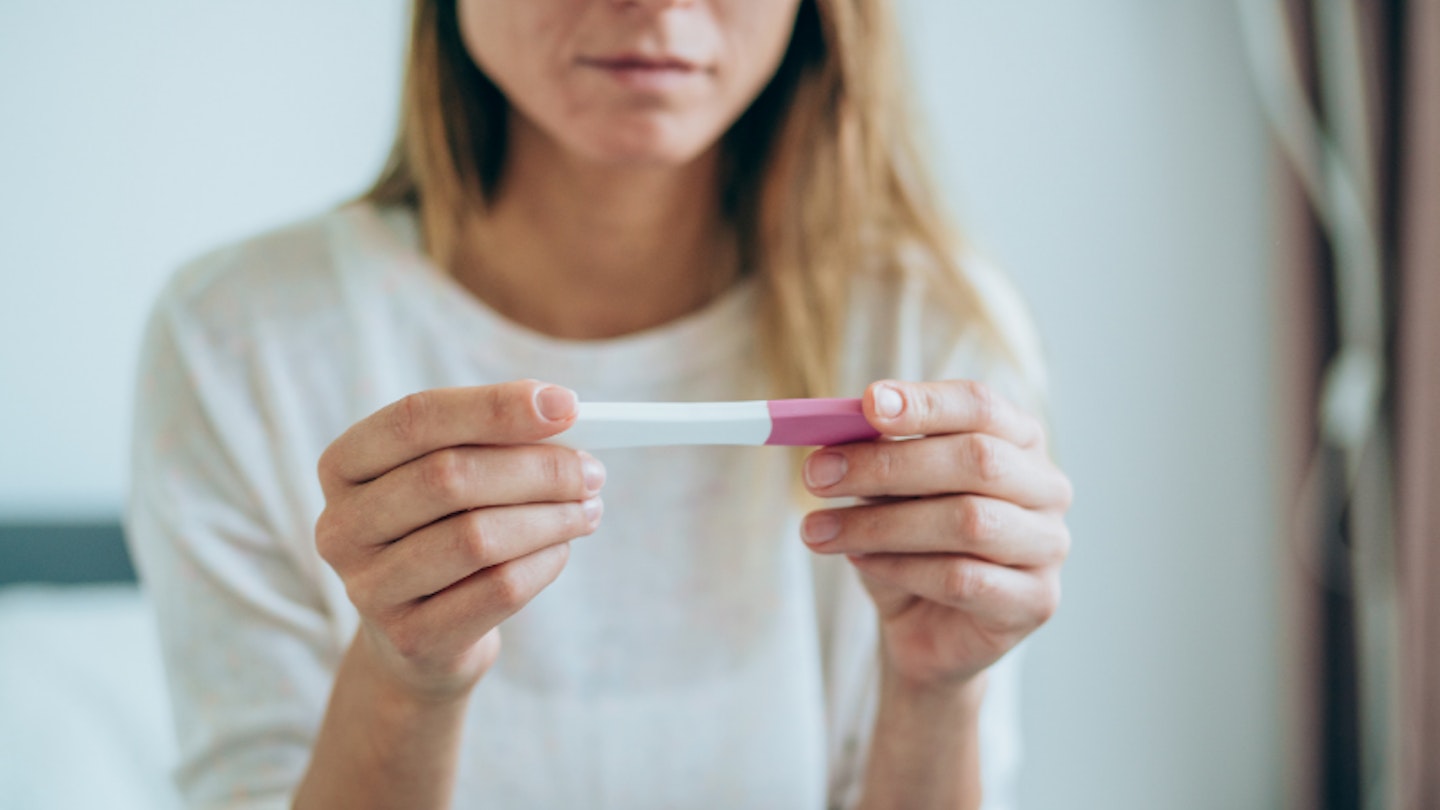Deciding to try for a baby or becoming pregnant after previously experiencing a devastating miscarriage is a truly difficult path to navigate, and it's normal to feel nervous and have lots of questions. To help you find some answers, we spoke to obstetrician and gynaecologist Dr Ellie Rayner.
What causes miscarriage?
Unfortunately, there are many reasons why a miscarriage may happen and it is not always possible to find out the exact cause. 'If the miscarriage occurred during the first three months of pregnancy, it is often caused by a problem with the way the chromosomes develop, resulting in either too many or not enough. The reason why this happens is unclear and usually doesn’t re-occur,' explains Dr Rayner.
How soon after a miscarriage can you get pregnant?
You should check with your healthcare team if there is any particular medical reason you should wait before trying to get pregnant again. 'If you have no ongoing treatment or complications and your symptoms of miscarriage such as pain or bleeding have settled you should be able to resume having sex if you want to,' says Dr Rayner. 'You may ovulate even before your first period, so if you do not feel ready to be pregnant again, it is best to use contraception until you are.'
When is the best time for pregnancy after miscarriage?
There is no right or wrong time to get pregnant after a miscarriage. It is an incredibly personal decision based on lots of different physical and emotional considerations and you should make an individual decision between you and your partner based on your own circumstances. 'Often, doctors recommend having at least one period after a miscarriage before trying to get pregnant again. This is to ensure you know that your symptoms of miscarriage have completely resolved and helps you know the exact date of your last menstrual period should you fall pregnant again to help date your pregnancy,' says Dr Rayner.
Is it easier to get pregnant after a miscarriage?
No, unfortunately having a miscarriage doesn’t increase your chance of getting pregnant sooner. Some couples do conceive quickly and for others, it can take a little longer, Dr Rayner reassures. 'Try not to worry too much, but speak to your GP if after a year of regular vaginal intercourse you have not conceived again.'
Are special tests recommended before attempting pregnancy after miscarriage?
'If you have had one or two previous early, or first-trimester miscarriages, you are not recommended to have any further tests before trying to conceive,' Dr Rayner explains. 'If you have had three miscarriages in a row this is called recurrent miscarriage and you should be offered a referral to a specialist clinic for further investigations, management and support.'
What can be done to improve the chances of a healthy pregnancy?
Unfortunately, there is nothing that you can do to guarantee a healthy pregnancy and baby, but there are some general health and lifestyle considerations you can undertakethat will lower the chance. Stopping smoking, stopping or reducing alcohol intake, stopping any recreational drugs, eating a healthy balanced diet, exercising regularly and maintaining a healthy BMI are all important and have been shown to improve fertility and reduce the chance of miscarriage.
There has also been recent guidance released from from the health watchdog NICE, based on research that suggests the hormone progesterone could lead to 8,450 more births each year in the UK for women who have experienced previous miscarriages.
It's thought that the hormone works to prepare the womb for growing the baby, so if you've experienced previous miscarriages and you think you might want to learn more, you should speak to your doctor.
When to call the doctor about getting pregnant after a miscarriage?
If you think you could be pregnant, confirm straight away and book an appointment with a midwife. Pregnancies are less complicated if you see a midwife within the first 10 weeks so track your cycle and let your GP know if you think you are pregnant.
What are the odds of another miscarriage?
'If you have had one or two early miscarriages the chance of another occurring is no greater,' says Dr Rayner. 'Up to 1 in 5 women will experience a miscarriage in their lifetime. Around 1 in 100 couples may experience three or more miscarriages in a row, and this is called Recurrent Miscarriage. If this happens to you, you will be referred to a specialist clinic for further tests, management and support.'
Will I get extra care in this pregnancy if I’ve previously had a miscarriage?
If you have had one or two early miscarriages your chance of another miscarriage isn’t any greater, so you are unlikely to be offered any additional scans or treatments. Healthcare professionals understand this can be a difficult time for couples who have experienced a previous miscarriage and will support you during a future pregnancy.
Can I have extra ultrasound scans?
'Unfortunately, additional ultrasound scans during early pregnancy can’t predict how your pregnancy will progress and often don’t give any information to help prevent a future miscarriage,' explains Dr Rayner. 'With this in mind, additional ultrasounds are not recommended. If you think it would help you, you can request an early scan by talking to your GP or early pregnancy unit, but it is not always possible and they may not be able to support your request.
Meet the expert: Dr Ellie Rayner is an obstetrician and gynaecologist. She is the founder of The Maternity Collective. Follow them on social media @thematernitycollective.
